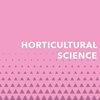Morphological variation of male A. arguta plants affects their flowering potential and pollen efficiency
IF 1.3
Q3 HORTICULTURE
引用次数: 2
Abstract
Actinidia arguta (Siebold et Zucc.) Planch. ex Miq. is functionally a cryptic dioecious plant and successful pollination is crucial for achieving high quality fruit. The extent and bases of morphological variability in female genotypes have been well studied, but here we focus on the males. Mature plants of seven male A. arguta genotypes were studied in 2016 and 2017 during which a suite of phenological and morphological features was measured on ten randomly chosen one-year-old canes on each plant. This analysis was complemented by two other, specialized measures potentially related to pollination efficiency, namely pollen quality, and quantity. The time of bud break was similar each year across all genotypes and the pollen quality was uniformly very high (viability – 95.0–99.9% and germination – 89.0–97.3%). However, the ten genotypes exhibited high variability in both the number of flowers per inflorescence and pollen quantity, indicating marked differences in their flowering potential and efficiency as pollinizers. The male kiwiberry indicators developed in this study – flowering potential and pollen efficiency, appear to be effective tools for the comparative evaluation of male A. arguta genotypes.软豆雄株的形态变异影响其开花潜力和花粉效率
争论猕猴桃(Siebold et Zucc.)Planch。前Miq。在功能上是一种神秘的雌雄异株植物,成功授粉对获得高质量的果实至关重要。女性基因型形态变异的程度和基础已经得到了很好的研究,但这里我们关注的是男性。2016年和2017年,研究了七种雄性论证藻基因型的成熟植株,期间在每株植株上随机选择的十根一年生的甘蔗上测量了一套酚学和形态学特征。这一分析得到了另外两项可能与授粉效率有关的专门措施的补充,即花粉质量和数量。所有基因型的破芽时间每年都很相似,花粉质量也都很高(活力为95.0-99.9%,发芽率为89.0-97.3%)。然而,这十个基因型在每个花序的花数和花粉量方面都表现出很高的变异性,表明它们作为花粉器的开花潜力和效率存在显著差异。这项研究中开发的雄性猕猴桃指标——开花潜力和花粉效率,似乎是比较评估雄性乌鸡基因型的有效工具。
本文章由计算机程序翻译,如有差异,请以英文原文为准。
求助全文
约1分钟内获得全文
求助全文
来源期刊

Horticultural Science
Horticulture-园艺
CiteScore
2.20
自引率
0.00%
发文量
23
审稿时长
>12 weeks
期刊介绍:
The journal publishes results of basic and applied research from all areas of horticulture, fruit-growing, vegetable-growing, wine-making and viticulture, floriculture, ornamental gardening, garden and landscape architecture, concerning plants that are grown under the conditions of European temperate zone, or field plants that are considered as horticultural cultures. Original scientific papers, short communications and review articles are published in the journal. Papers are published in English (British spelling).
 求助内容:
求助内容: 应助结果提醒方式:
应助结果提醒方式:


